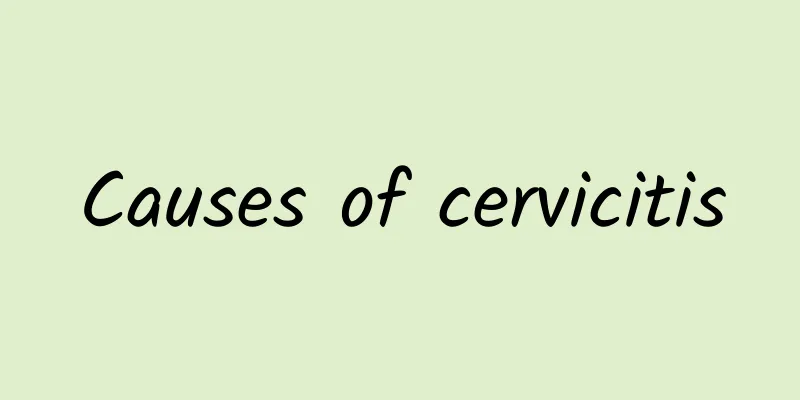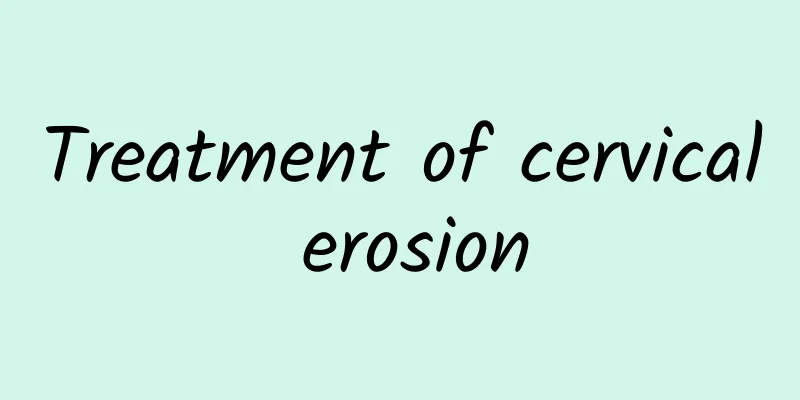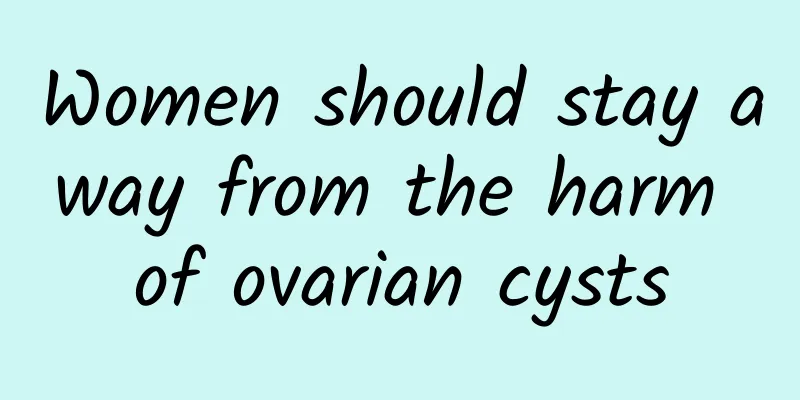What are the symptoms of left ovarian cyst and how to care for it

|
To be precise, the left ovarian cyst is an ovarian tumor, which refers to the formation of a cystic mass in the ovary. So, what are the symptoms of the left ovarian cyst? How to take care of it? Cysts can be benign, malignant, cystic or solid. The mortality rate of malignant ovarian cysts is high, ranking first among gynecological tumors. Therefore, once it is confirmed that it is a left ovarian cyst, it needs to be paid attention to. Symptoms of left ovarian cysts include: 1. Increased abdominal circumference and abdominal swelling are the most common phenomena in patients. 2. Abdominal pain: If the cyst has no complications, there is little pain. Patients with ovarian tumors may feel abdominal pain, especially if it occurs suddenly. This is usually caused by torsion of the tumor pedicle, or occasionally by cyst rupture, bleeding or infection. 3. Menstrual disorders. 4. Compression symptoms. A huge ovarian cyst can cause dyspnea and palpitations due to compression of the diaphragm. Ovarian cysts combined with a large amount of ascites can also cause such symptoms. If the left ovarian cyst is not treated in time, it will cause many harms. Below, the author introduces some care methods to you: 1. Environmental adjustment: It is not suitable to live in a humid environment; in rainy seasons, be careful of the invasion of dampness. 2. Exercise: PCOS patients with phlegm-damp constitution are often obese, heavy and easily fatigued, so they should persist in physical exercise for a long time. 3. Medication-assisted conditioning: There are many health products and drugs for ovarian conditioning on the market. Patients should combine the doctor's advice and choose the appropriate medication for conditioning according to their own situation. 4. Relax, build confidence in treatment, and be patient in treatment. Young women with this disease who are not treated have a high chance of developing type 2 diabetes in middle and old age. Untreated this disease is considered a progressive syndrome, which will last a lifetime once it occurs. |
<<: How do ovarian cysts form?
>>: How to Check for Uterine Fibroids
Recommend
Diagnosis of vaginitis requires a medical examination and pathogen testing
Diagnosis of vaginitis includes two aspects: dete...
How to deal with irregular menstruation? 3 ways to deal with irregular menstruation
Medicinal diet fights irregular menstruation in w...
What are the early symptoms of bacterial vaginosis?
Bacterial vaginosis is one of the common gynecolo...
Breakfast contains three hidden calorie mines! Sandwich clips, these are tough guys
Eat breakfast like a king! Breakfast can start th...
Analyze the symptoms of various types of vaginitis
Vaginitis is a common disease in life, and there ...
Can chocolate cysts be cured?
Can chocolate cysts be cured? The answer is yes. ...
Count calories, look at GI value... There are a lot of dietary tips for weight loss, but what should you consider first?
How should I eat to lose weight? Losing weight th...
What are the reasons why women suffer from adnexitis?
Many women may suffer from adnexitis. If this dis...
Why does a 16-year-old girl have her period every 15 days?
A 16-year-old girl who has her period every 15 da...
To prevent degenerative arthritis, you must do muscle strength training and stretching exercises to relieve pain and stiffness!
If you experience pain, swelling, heat, and stiff...
What should I pay attention to when taking medication after an abortion?
What should I pay attention to when taking medica...
How to eliminate edema and varicose veins? Chinese medicine practitioner Dong Yirong: Beautiful legs scraping method promotes blood circulation
Many women suffer from lower body edema due to po...
Precautions after painless abortion
Things to note after painless abortion: Painless ...
Understand the different effects of various treatments for vulvar leukoplakia
Vulvar leukoplakia is a phenomenon of hypopigment...
How to care for endometrial thickening during treatment
How to take care of the thick endometrium during ...









